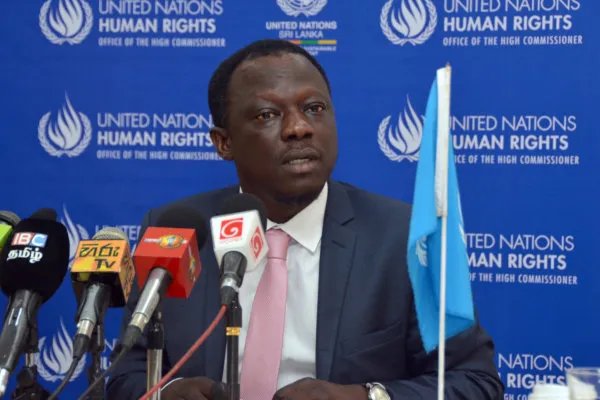Elections and Civic Space: Lessons from Africa
PUBLISHED: JULY 2024
Election periods in Africa are frequently marred by increased restrictions on civic space, hindering the ability of civil society organizations (CSOs) and other defenders of democracy to ensure that elections are free, fair, and credible. In 2024, 19 African countries will hold general or presidential elections, beginning with the Comoros in January and ending with South Sudan in late December. Recognizing the potential impact that this year of elections will have on the future of democracy on the continent, ICNL organized an online consultation to learn from local partners about the issues challenging civic space in Africa before, during, and after elections and to identify promising strategies to counter these threats.
Clément Voule, former UN Special Rapporteur on the freedom of peaceful assembly and of association, opened the event by stressing the critical role of non-partisan CSOs in ensuring that elections are free and fair. CSOs educate voters, encourage citizens to vote, monitor elections, and respond to rights violations. Voule and several other United Nations (UN) experts stressed the importance of protecting and advancing civic freedoms, including the freedoms of association, peaceful assembly, and expression, in the context of elections in a Joint Statement on strengthening democracy and human rights issued earlier this year.
After Voule’s remarks, CSO representatives from African countries that have held recent elections (Zimbabwe, Senegal, Zambia, and South Africa) or will hold elections in the near future (Tanzania, Uganda, Mozambique, Ghana, and Namibia) shared some of the civic space-related challenges they faced or anticipated facing. These include:
- Intimidation tactics: Governments detain and arrest CSO staff, volunteers, and activists to discourage dissent and weaponize laws governing issues such as digital surveillance and anti-money laundering/counter-terrorism financing to deter CSO activism, especially in online spaces.
- Bureaucratic obstacles: Government bodies and leaders—both at the national and local levels—hinder the work of CSOs engaged in election-related work, including denying accreditation, restricting their access to local communities, and disbanding informal CSO coalitions monitoring elections.
- Stigmatization: Government officials and politically affiliated media use hostile rhetoric, including that of “foreign agents,” to discredit CSOs engaging in election-related activities. At the same time, anti-democratic leaders divide the population through populist language.
- Access to information restrictions: Misinformation and disinformation distort the information available to voters, while internet shutdowns and slowdowns undermine activists’ ability to share accurate information.
- Funding restrictions: Several governments have sought to limit CSOs’ access to the funding they need to engage in legitimate, non-partisan work during election periods. In addition to suspending access to domestic funding, “foreign agent” laws control access to foreign support.
CSO speakers also stressed the importance of staying connected with other civil society actors at various levels to overcome these challenges.
- Domestically, CSO speakers recommended forming broad coalitions to defend one another while also reaching out to the public to build community trust and support.
- Regionally, CSOs confronting similar problems should share lessons learned and devise joint strategies rather than working in silos. These connections should be built in advance, ideally before electoral periods when opportunities to engage in such peer learning are often restricted.
- Internationally, CSOs should engage with multilateral institutions, including the African Union and UN bodies, to ensure that these bodies are informed of and respond to developments.
Finally, CSOs recommended key actions for different actors to protect civic space during election periods. Multilateral bodies must follow up on statements made by their human rights mechanisms and ensure these statements are consistent. Development partners should fund election-related work both during and outside of election periods and provide emergency funding when urgent threats arise. CSOs must harness new technologies, including artificial intelligence, to promote civic space around elections. CSOs, development partners, and multilateral bodies must all promote an open media environment, push back on disinformation, and advocate for enabling domestic laws that protect civil society and strengthen the freedoms of association, peaceful assembly, and expression.
The consultation ended with representatives of other international bodies explaining how they can support efforts to protect civic space during election periods. An African Commission on Human and Peoples’ Rights representative outlined various regional tools CSOs can use to support their advocacy, including the Declaration of Principles on Freedom of Expression and Access to Information in Africa, which inter alia affirms that “the same rights that people have offline should be protected online,” and the Guidelines on Access to Information and Elections in Africa which elaborate on information that should be proactively disclosed by all role players in elections, including political parties, election observer missions, and the media, among others. Additionally, the African Union’s Charter on Democracy, Elections, and Governance, calls on States to “create conducive conditions for civil society organizations to exist and operate within the law.”
The newly appointed UN Special Rapporteur on the freedom of peaceful assembly and of association, Gina Romero, reiterated the importance of preserving civic space during election periods “to strengthen democracies and to ensure that electoral processes are in line with the different provisions at both the national and international levels.” She also outlined her priorities for the coming year, which include a report on lessons learned from this “super election” year, which will draw on the points raised in this consultation. A consultant with the UN Special Rapporteur on freedom of expression also indicated that the mandate would use the input from this consultation when drafting a report on the threats and challenges that digital technologies pose to freedom of expression during elections.
ICNL will continue to support our local partners’ efforts to promote and protect civic space during this critical election year and beyond. As ICNL Senior Legal Advisor Florence Nakazibwe concluded, “Democracy works if we work together.”
Sign up for our newsletters
Sign up
